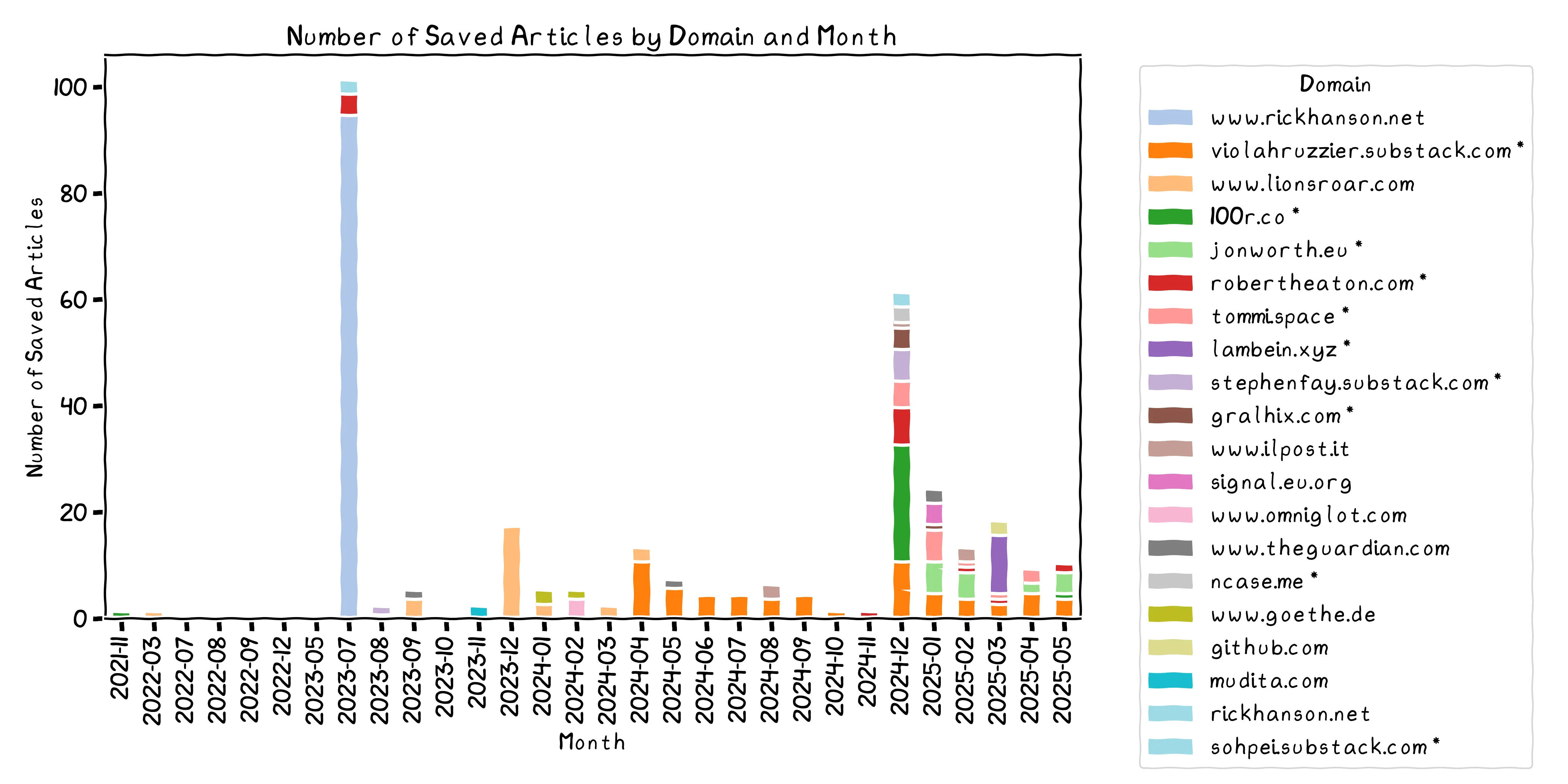📩 Goodbye, Pocket
My experience using Pocket, and moving forward
When checking my phone last Friday morning, I was greeted by an email (in German) informing me (after a bit of translating) that Pocket, the service I had been actively using for over 2 years to save blogposts, is shutting down.
You might be surprised to learn that I'm upset about this. After all, for a lot of people Pocket is that annoying icon you once accidentally pressed on the Firefox toolbar and decided to hide since. It is also not open source, or serves a particular mission.
Why use a website that simply stores a list of articles, when you can simply read them straight away?
How I used Pocket
You see, in the past few years I started particularly enjoying reading blogposts. It gives me the right amount of dopamine and other feel-good neurotransmitters. Not too much, like watching click-bait YouTube videos, and not too little, like reading a long non-fiction book. A blogpost can be a perfect bed-time story. But reading on a bright screen that will bombard me with other distractions is a no-go.
So what's the solution? In 2019, I bought a second-hand KOBO e-reader for 50 euros. I didn't use it much, because reading long books on paper does give you a much better feeling (and an idea of how many pages you still have till the end of the chapter and the book, which is essential). Until a few years later, when I discovered that it can synchronise articles using Pocket. I could now save articles directly from my browser, and read them at the end of the day on my little e-ink display. Wonderful!
But it was about to become even better. On my side-projects-server, I installed Huginn, a tool to automate tasks in the background. The interface is not the most user-friendly and it clearly hasn't entered the "AI era" (probably for the best), but it is useful for one specific goal: synchronising RSS feeds with Pocket. RSS feeds allow you to "follow" a certain blog, and update when new blog posts are added. This means that I could now go to bed, and read all the new posts from blogs I follow. A special shout-out to Science Stories, which is by far the blog I am the happiest to see appear on my e-reader's screen.
This solution isn't perfect - since everything has to go through Pocket, articles behind a paywall (that I paid for) will not appear, and Pocket will sometimes not find the main text in articles and not show it in the e-reader. But it worked well enough, with very little (to no) maintenance required. I even linked it to an email address, where anyone could send me URLs that would automatically be added to Pocket (which was used very little). After many years, it had become something I had taken for granted.
 To prove to myself that I'm a data scientist, here's a plot of the data I exported from Pocket. Prior to July 2023, I had the habit of deleting articles instead of archiving them, meaning that most data from then is not available. Adding a new feed to Huginn results in all previous posts being added at once, hence the spikes for certain domains. I put little asterisks (*) next to blogs I particularly enjoy or would recommend, as opposed to articles that are often sent to me.
To prove to myself that I'm a data scientist, here's a plot of the data I exported from Pocket. Prior to July 2023, I had the habit of deleting articles instead of archiving them, meaning that most data from then is not available. Adding a new feed to Huginn results in all previous posts being added at once, hence the spikes for certain domains. I put little asterisks (*) next to blogs I particularly enjoy or would recommend, as opposed to articles that are often sent to me.
Why care?
It is no big surprise that Mozilla is discontinuing Pocket. I'm guessing it required maintenance costs for a small user base, most of which were non-paying users (like me).
For such niche projects, an organisation like Mozilla should have really thought about open-sourcing the code from the start and making it self-hostable. This way, taking down their server would simply mean that I can now host it on my server, and simply change the domain name in the settings on other platforms like Kobo's. But again, there seems to be too little interest in such a niche project.
What's next?
Pocket will stop working on the 8th of July. An ideal case scenario would be that KOBO will provide native support to another platform until then. I find this unlikely, given the short time period and small impact on the actual product. Another alternative for me would be installing KOReader, an open-source viewer that can be installed on the KOBO, and that supports plugins for other applications. There are multiple open-source alternatives to Pocket: Wallabag, Raindrop, Readeck... Some of them already have KOReader plugin integrations, although still in early development.
My plan is to wait until a more stable/used alternative emerges, where most Pocket users (and developers) will migrate to. I don't intend spending much time exploring each one of them, so if you have any recommendations, let me know!